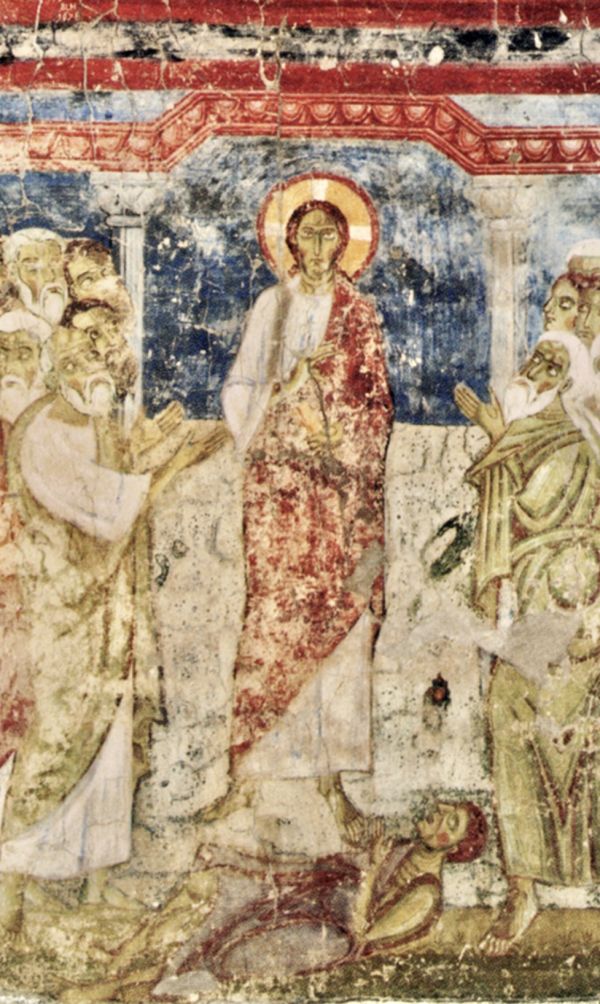The immondous and quiet spirit, in synagogue
(Mk 1:21b-28)
After inviting the first disciples to the sequel (Mk 1:16-20) making them «fishers of men», Christ brings his intimates - precisely - to "fishing".
The surprise is paradoxical, and lies in the first of the environments it indicates. What today - not by chance - struggles more to hold up with everything, as it once was.
Before Jesus, in synagogue the situation was of "peace": a quiet and a mainstream mentality that suited everyone, even regulars.
But the two poles are bitter opponents: they can't stand each other, they immediately make sparks.
Where the authentic Master arrives, the ancient stagnant and compromissory balance cannot continue: his Presence is not conciliable with the forces of hibernation.
Christ is not limited to the noble exhortations: he does not repeat commonplaces of others, but fights and expels the power of evil that takes possession of creatures, aligns and alienates them.
The man who cries out against Jesus speaks in the plural (v.24; cf. Lk 4:34) precisely because the Gospel goes to promote personal wealth and undermine interests of lobby groups.
The "possessed" proclaims the Name of the young Rabbi (v.24a), hoping to show a superiority and take possession of Him.
But the Son of God does not allow himself to be seized by tricks.
Mark‘s catechesis invites us to compare everyone’s experience to the unresigned life of the Son.
False teachings had inculcated in people’s minds that the «saint of God» would present himself in an eloquent, peremptory way.
An eminent and celebrated figure: sovereign, leader, high priest... thus recalling the distinctive customs of the elected people.
Among "synagogue" goers this conviction brought with it a ‘spirit of awe’ that produced sedated personalities, habitual and reassuring observances.
But now someone feels threatened.
«And the [spirit] unclean, writhing him and shouting loudly, came out of him» (v.26). Why «contorting» him?
It’s really heartbreaking to discover that ideal lifestyles and conditioning can lead astray.
In this way, so many minutiae inculcated as sacred values are perhaps precisely those that distance us from a dialogue of love with God.
Only in Christ the «new teaching» is a «didachè kainè» (v.27), which in the Greek expression emphasizes a call of superior quality.
Appeal that replaces, completely carries away and substitutes everything else. And it won’t be overcome. Word that lays bare and sweeps out ballasts.
Women and men start living and breathing again; they no longer allow themselves to be plagued by ideas and limitations; beliefs that are extraneous, opportunistic, soporific, or dissociated, hysterical [filled with empty, not rooted projections].
In short, the Son - present - gives us back awareness of the Call to Freedom - previously without a construct.
It makes recover to us (who habitually frequent places of worship) a perfect ‘personal’ judgment, an unthinkable purity.
Even in depth, as in excess.
[Tuesday 1st wk. in O.T. January 14, 2025]












